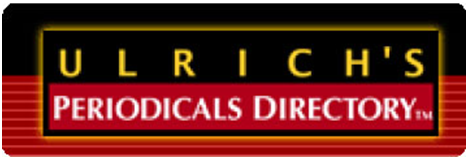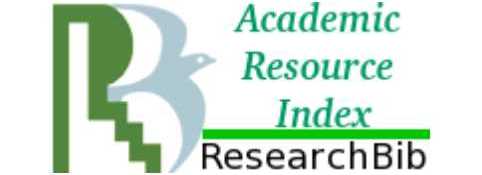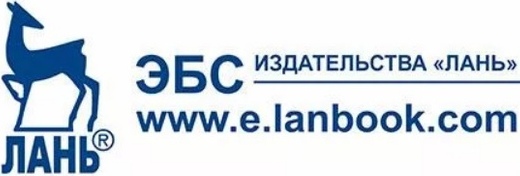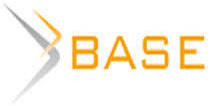ON THE METHODS OF INVESTIGATING THE TRAJECTORIES OF THE MOTION OF OBJECTS OF LABOR IN THE PHASE SPACE OF STATES
A model of an economic-production system with a flow-based method for organizing production is considered. The space of states of the subject of labor is introduced. The state of a particular subject of labor is determined by a point in the state space. The state of the economic-production system is determined through the aggregation of the states of a large number of the subjects of labor that are in the process of production. The paper assumes that if the state of each individual subject of labor is known, then the state of the parameters of the economic-production system is known. Using the variational and differential principles, Lagrange's function of the economicproduction system is recorded. The equation for the normative technological trajectory of the movement of a subject of labor along a technological route is defined in the state space. When the subject of labor moves along a technological trajectory from one technological operation to another technological operation, technological resources are transferred to the subject of the labor as a result action of technological equipment. The Lagrange function of the economic-production system with a flow-based method of organizing production is recorded. The Lagrange function is constructed using the variational and differential principle. Methodological differences are shown when using the variational and differential approach to construct the Lagrange function of economic-production systems. It is shown that the Lagrange function, taking into account production and technical and socio-economic constraints, determines the subjective function of the economic-production system. The integrals of the movement of subjects of labor in the state space are defined, which can be used to model economic-production systems with a flow-based method of organizing production. It is shown that the integrals of motion are conservation laws that characterize the process of processing subjects of labor along the technological route.
















While nobody left any comments to this publication.
You can be first.
1. Prytkin B.V. Technical and economic analysis of production. – М.: UNITY-DANA, 2000. – 399 р. (in Russia)
2. Letenko V.A., Rodionov B.N. Organization, planning and management of a machine-building enterprise. Part 2, Intra-plant planning. – Moscow: Higher School, 1979. – 232 p. (in Russia)
3. Demutsky V.P., Pihnastaya V.S., Pihnastyi O.M. Stochastic description of economic and production systems with mass production – Reports of the National Academy of Sciences of Ukraine, 2005. – N7– P.66-71 (in Russia)
4. Mikhaylenko V.G., Didichenko N.P., Dubrovin A.A., Khodusov V.D., Demutsky V.P., Pihnastyi O.M. Features of modeling of technological processes of production systems – Vestnik KhNU (economic series), 2006. – N719 – P.267-276 (in Russia)
5. Shananin A.A. Generalized model of the net industry // Mathematical modeling, 1997, volume 9, №9, p. 117–127 (in Russia)
6. Wenzel E.S., Ovcharov L.A. The theory of random processes and its engineering applications. – Moscow: Higher School, 2000. – 383 p. (in Russia)
7. Fedyukin V.K. Quality management processes / V.K. Fedyukin – St. Petersburg: Peter, 2004. – 204. (in Russia)
8. Pihnastyi O.M., On the construction of the subjective function of the production system / O.M. Pihnastyi // Dopovidi Natsionalnoi Akademii Ukrainy. – Kyiv: Publishing House "Academiperiodika". – 2007. – №5. – P. 50-55. (in Russia)
9. Yakimovich S.B. Formation of sets of logging machines based on the distribution of the state of subjects of labor along the route of technological processes. / S.B. Yakimovich, I.Yu. Volodin // The Forest Herald. – M: MGUL, – 2001. – №2. – P. 96 – 103. (in Russia)
10. Vlasov V.A. Modeling of technological processes of manufacturing of industrial products / V.A. Vlasov, I.A. Tikhomirov, I.I. Loktev. – Tomsk, Izd. GTPU, 2006. – 300 with. (in Russia)
11. Dabagyan A.V. Designing technical systems / A.V. Dabagyan. – Kharkov: TH "Golden Mile", 2008. – Volume 2. – 280 p. (in Russia)
12. Ventsel E.S., Ovcharov L.A. The theory of random processes and its engineering applications. – Moscow: Higher School, 2000. – 383 p.
13. Shananin A.A. Generalized model of the net industry // Mathematical modeling, 1997, volume 9, №9, p.117-127
14. Demutskiy V.P. Theory of the enterprise: Stability of the functioning of mass production and promotion of products to the market / V.P. Demutskii, V.S. Pihnastyi, O.M. Pihnastyi. – Kharkov: KhNU, 2003. – 272 p. (in Russia)
15. Gantmakher F.R., Lectures on analytical mechanics / F.R. Gantmakher. – Moscow: Nauka, Ch. Ed. fiz.-mat. Lit., 1966. – 300 p. (in Russia)
16. Balashevich V.A. Mathematical methods in production management / V.A. Balashevich. – Minsk: Higher Education. pcs., 1976. – 334 p. (in Russia)
17. Pihnastyi O.M., Statistical theory of production systems / O.M. Pihnastyi. – Khar'kov: KhNU, 2007. – 388 p. (in Russia)
18. Pervozvansky A.A. Mathematical methods in production management / A.A. Pervozvansky. – Moscow: Nauka, 1975. – 616 p.
19. Zaruba V.Ya. Modeling the movement of an subject of labor in the state space using the example of turning technology / V.Ya. Zaruba O.M. Pihnastyi, V.D. Khodusov // News of the National Technical University "Kharkiv Polytechnical Institute". Zbirnik naukovyh prat. Series: Technical progress and production efficiency. – Kharkiv: NTU "KhPI". – 2016. – No. 27 (1199) – P. 33–37. (in Russia)
20. Pihnastyi O.M. Model of the production process of processing a batch of labor items / O.M. Pihnastyi, V.D. Khodusov // Automated technologies and production. Magnitogorsk: MSTU named after Nosov. – 2016. – No. 1 (11). – P. 24–32 (in Russia)
21. Pihnastyi O.M. Stochastic model of the transfer of technological resources to the subject of labor as a result of the impact of technological equipment / O.M. Pihnastyi // Belgorod State University Scientific Bulletin. Economics Information technologies. – 2016. – Vol. 38. No. 9(230). – P. 146–155 (in Russia)
22. Yakimovich S.B. Statement and solution of the problem of synthesis and optimal control of technological processes of logging / S.B. Yakimovich // The Forest Herald. – M: MGUU, – 2003. – №3. – pp. 149–160. (in Russia)
23. Pihnastyi O.M. Analysis of principles and methods for constructing control systems for the production process / O.M. Pihnastyi / Belgorod State University Scientific Bulletin. Economics Information technologies. – 2016. – Vol 37. No 2(223). – P. 152–161 (in Russia)
24. Pihnastyi O.M. The review of models of controlled production processes of production line production lines / О.М. Pihnastyi // Belgorod State University Scientific Bulletin. Economics Information technologies. – 2015. – Vol. 34/1. nO 7(204). P. 137–152. (in Russia)
25. Serebrennikov G.G. The organization of production / G.G. Serebrennikov. – Tambov: Ed. TSTU, 2004. – 96 (in Russia)
26. Sinitsa L.M. The organization of production / L.M. Sinitsa. – Mn .: UPI of the Ministry of Finance, 2003. – 512 p. (in Russia)
27. Pihnastyi O.M. Use of PDE-models for the construction of a unified theory of production lines / O.M. Pihnastyi / Visnik Khersonskogo national technical university. Kherson: KhNTU. – 2014. – No. 3 (50). – P. 405 – 412 (in Russia)
28. Pihnastyi O.M. On a New Class of Dynamic Models of Production Line Production Lines / O.M. Pihnastyi // Belgorod State University Scientific Bulletin. Economics Information technologies. – 2014. – Vol. 31/1. No 15(186). – P. 147 – 157 (in Russia)